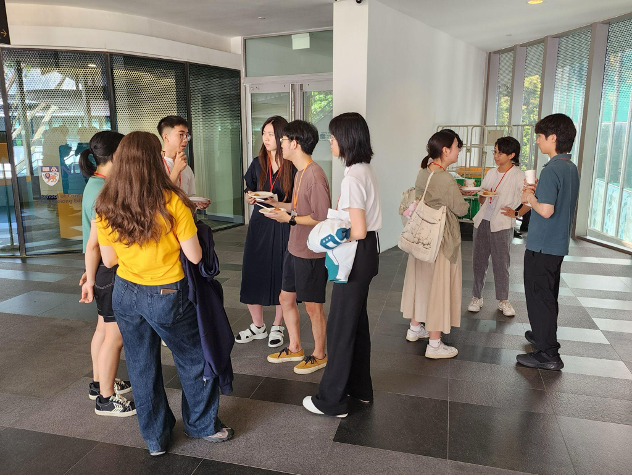In an exciting development for students at the intersection of engineering and artificial intelligence, the National University of Singapore (NUS) recently hosted its inaugural 2024 NUS Young Fellowship Program. Among the participants were civil engineering students Ms. Bea Angela C. Gaw and Ms. Janelle Patricia S. Moa, who delved into the fascinating world of generative AI.
The program, which ran from June 24 – July 24, 2024, aimed to introduce students from diverse academic backgrounds to the emerging field of generative AI. Despite initial reservations about how well the program would align with their field of study, they embraced the opportunity and were met with an experience that exceeded their expectations.
Upon arrival, participants were greeted with exceptional care, being transported directly from the airport to the NUS dormitories. The university ensured a smooth transition, providing welcome kits and individually escorting participants to their rooms. The dormitory was a dedicated space for scholarship recipients and guest visitors with community-oriented facilities.
The program kicked off with a series of activities blending plenary sessions, site and laboratory visits, project work, and cultural excursions. It quickly became evident that NUS was not only focused on the classroom experience but also on fostering an environment of inquisitive curiosity. As part of the inaugural batch, students had no previous experiences to draw from, making the journey even more unique.
Official opening of the program and welcoming of participants
Initial meeting with groupmates
One of the highlights of the program was a series of hands-on workshops and laboratory visits that demystified the concept of generative AI. Participants engaged in discussions on tools like ChatGPT and explored their potential applications in fields ranging from semiconductor engineering to biotechnology.
A standout moment was the visit to NUS's net-zero energy building—the first of its kind in Asia. The building showcased adaptive tropical architecture, utilizing Singapore’s natural conditions to generate energy or reduce consumption. Features such as motion sensor-based lighting, acoustic baffles, and adjustable perforated metal sheets demonstrated the practical application of concepts they learned in their courses.


Some features of Asia’s first net-zero energy building
The program was not just about learning; it was also about networking and cultural exchange. Students from various countries and disciplines came together, creating a rich tapestry of perspectives. Groups consisted of representatives from civil engineering, law, biomedicine, mechatronics engineering, and sociology, hailing from countries like Italy, Vietnam, China, Malaysia, and Australia.
A photo with fellow Filipino participants from the University of the Philippines and Ateneo de Manila University


Photos of side trips with friends to different attractions
Outside the academic setting, participants explored Singapore, visiting iconic attractions such as Universal Studios, the Singapore Zoo, and Gardens by the Bay. These excursions provided ample opportunity for cultural exchange and bonding.
In summary, the NUS Young Fellowship Program is a testament to the power of interdisciplinary learning and the expanding role of generative AI across diverse fields. The program offered participants a unique blend of academic exploration, hands-on experiences, and cultural exchange, highlighting the growing relevance of AI technologies in areas beyond their traditional applications. This initiative broadened the horizons of students like Ms. Gaw and Ms. Moa and emphasized the value of stepping outside one's comfort zone to embrace new opportunities. The experience serves as a reminder of the importance of adaptability, open-mindedness, and the pursuit of knowledge in an increasingly interconnected and technologically advanced world.










.jpg)



No comments:
Post a Comment